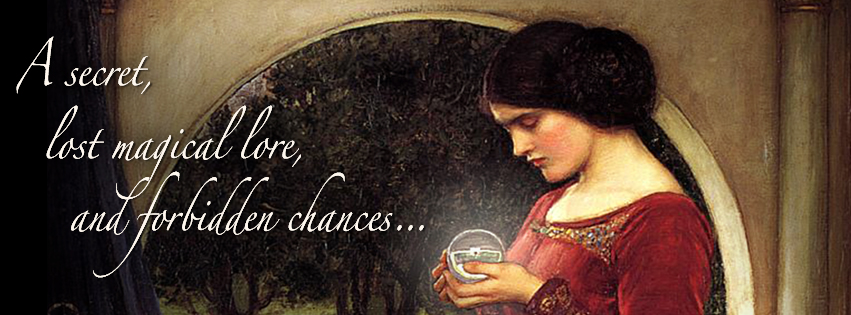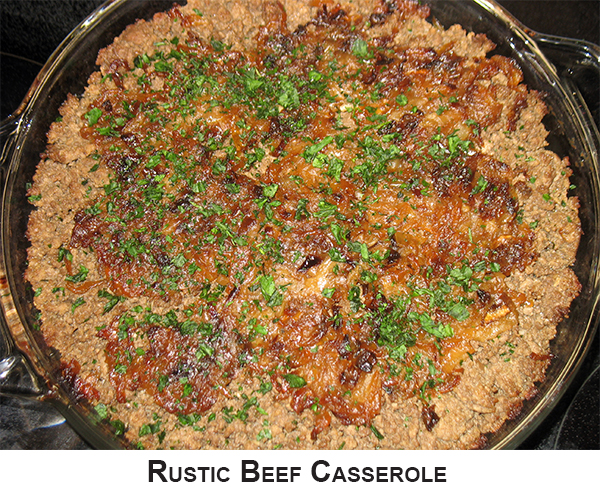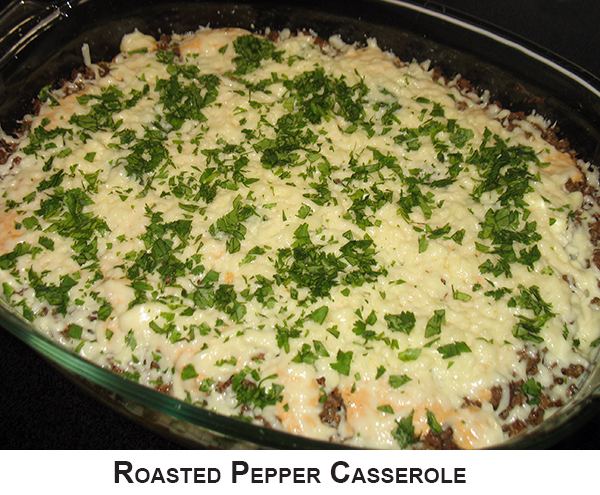Chapter 18
 Gael waited on a landing within the dimness of the Lake Stair where the passage from the great hall debouched. The view through a nearby arrowslit showed the dark shadow of the tower stretching far out across the glittering sunlit waters of the lake, but Gael had his back to the opening. He stood directly in front of the steps leading up. He did not intend to let Theron have unimpeded access to the ascent to his quarters.
Gael waited on a landing within the dimness of the Lake Stair where the passage from the great hall debouched. The view through a nearby arrowslit showed the dark shadow of the tower stretching far out across the glittering sunlit waters of the lake, but Gael had his back to the opening. He stood directly in front of the steps leading up. He did not intend to let Theron have unimpeded access to the ascent to his quarters.
The brightness filling the feasting chamber—direct sun through its southwestern windows mingled with torchlight—did not reach so far as the stairwell, but the din of five-hundred trolls eating and conversing carried easily. A steady rumble of shifting chairs and shifting diners sounded beneath the cacophony of voices, while the occasional ting of a knife against a bronze serving bowl sang above it.
The scent of almond cakes made Gael glad that Barris had pressed a trio of meat tartlets upon him before he left the kitchen. Eating held definite appeal, but real hunger remained in abeyance.
Gael had located the castellanum quite simply.
The march’s quarters lay a mere three and one-third twists from the tower’s topmost level. Gael had retraced his steps after his interview with Carbraes, climbing to the battlements and then descending via the Lake Stair, checking each great hall as he went down.
The high table in the upper feasting chamber had lain bare and untenanted. The elite trolls dining at the flanking boards dined without their regenen, their secretarius, their march, or their castellanum—as they did whenever Carbraes chose to eat elsewhere.
The middle great hall had been equally barren of the four officers bearing Belzetarn’s highest prestige.
In the lower great hall, Theron presided alone at the high table, usurping the regenen’s chair and filling the neighboring seats with his cronies. Gael had been gratified to notice a hint of elated satisfaction in the castellanum’s demeanor as he gestured graciously to the steward beside him. Theron’s fall from favor—if one could call the regenen’s tolerance of his castellanum such—to disgrace would be great. As well it should be.
Having found his quarry, Gael had retreated from the passage mouth.
Theron would be the first to summon a server with basin, ewer, and cloths to wash and dry the castellanum’s hands; the first to rise; the first to depart the feast hall. He might invite a few guests to attend him in his quarters, but they would follow at a discrete interval, rather than accompanying him on the stairway. Nor would he retire to some other haunt within Belzetarn. Theron’s evening activities were quite predictable.
Gael raised his chin from his chest when footsteps sounded in the passage from the great hall—leisurely footfalls, those of a troll confident in his power and his position.
Theron rounded the corner a moment later. He reared back, nostrils flaring in his thin nose, when he spotted Gael.
“Really, Secretarius,” came the castellanum’s cultured voice, “I should not have to ask you to stand aside.”
“Walk with me,” answered Gael, gesturing down instead of up, as Theron likely would have preferred.
“Can it not wait?” asked Theron, coldly.
“I believe not,” said Gael, curious to see if Theron would assume that some official concern required his attention—something tangential upon Dreas’ death perhaps, which event Theron surely must know. Or not. It didn’t matter. Gael had additional promptings ready, should he need them.
But Theron fell in with the arc of Gael’s gesture, moving toward the steps down. Perhaps the castellanum’s sense of his own dignity disinclined him to stand brangling with the secretarius barring his way.
Gael took the outside position as they descended, the better to block the castellanum unobtrusively, if he should decide to change his mind.
“You occupy a position of great trust, Theron,” Gael began, a tinge of rigor in his tone. “You have in your keeping the keys to every chamber in this citadel. Except those to my tally room and my vaults, of course,” he added deliberately.
Did Theron quiver just the least bit? Gael knew it rankled in him that the castellanum did not possess those keys, too.
“And you send your boys into every chamber as well,” Gael continued. “I am not convinced that you deserve the faith placed in you.”
They had reached the first landing down from the great hall, one and two-thirds of a twist around the newel post. Gael was tallying—a tally he could make in his sleep, if need be—as he must time his provocations to their progress.
Theron sniffed. “Your own position of trust carries similar requirements. And opportunities.” His voice grew acerbic. “Are you certain that you have not abused those opportunities granted by it to you, Gael?”
Ah! Theron had given him the perfect straight line.
“You shall tell me,” said Gael. “But did not your boys abuse their position of trust? They entered my chambers while I travelled from Belzetarn to Olluvarde, and used their seclusion to pry into my padlocked storeroom. Or was it you abusing the chance offered by your keys and my absence? Did you order those boys to gain access to that gong? Had you nefarious plans for the artifact? Theron?”
They had reached the second landing, another one and two-thirds of a twist down.
“Don’t be a fool, Gael” replied Theron. “I’m no magus! But you once were.”
“The regenen is making changes in his stronghold,” said Gael. “He has appointed a new march.” Gael glanced at Theron to note whether he showed surprise or dismay at this tidbit. He didn’t, which was informative. “How if Carbraes were to appoint a new castellanum?”
Theron snickered.
They had reached the third landing, and Gael ushered Theron into the passage toward the place of arms.
“I wonder that you envision Carbraes replacing his castellanum,” said Theron. “Surely he would prefer to replace his secretarius! Think, my dear Gael! My boys committed a minor peccadillo; your underling killed a troll and perhaps not so innocently. Did you order him to kill Dreas? Your underling was far less trustworthy than were mine. Unless he did your bidding, of course.”
The place of arms was utterly empty, cleared of the practice butts and mats, no warriors lingering. Long rays of sunlight shone in the southwestern windows to their left, and the ornate stairway that wound around the massive center pillar—the channel for the smithies’ smokes—climbed into the shadows of the high vault.
Gael marched straight across the space toward the passage to the Cliff Stair, just a half-step ahead of his companion.
Theron continued with his own brand of poison. “I scarcely believe that Carbraes keeps faith with you, Gael, in the wake of the murder of his dearest friend!”
Gael paused before answering, giving them time to enter the passage. They paced side by side and then began their descent again, toward the next place of arms.
Gael spoke. “Carbraes and I remain solidly allied. I am just come from him, my dear Theron, and he assured me of his forgiveness and his continued support. The regenen will believe me, not you.”
They were nearing the first landing.
“The regenen showed every evidence of his mistrust in you when he presented his new march to me,” parried Theron. “And his new march—” Theron allowed himself a beat of silence “—Dreben, mislikes you in the extreme. I urge you: beware!”
They had reached their destination, two steps above the landing.
Gael stopped.
“I possess reins for Dreben,” countered Gael. He didn’t, but no matter. The surface, not the substance, counted here. “But you, my very dear Theron, are failing in your duties, and there is no redemption from an obligation ill-done. Or omitted altogether.”
Gael threw open the door in the curving wall of the stairway.
The stench from the latrine with the clogged outlet rolled over them. Theron flinched back, astonishment on his face.
“My dear Gael, really? A clogged latrine? Really?” Did the castellanum look the least bit nervous? Perhaps not.
Gael gestured Theron to enter the cramped space. After a momentary hesitation, he did so. Gael followed him closely, shutting the door behind them. The cranny was utterly dark.
Gael gestured with his wrist—a gesture very like the one Nathiar had made in quest of honey.
The pale blue glow of magelight sprang up, illuminating Theron’s pale face. Gael did not think the castellanum’s pallor due merely to the coolness of the radiance. Gleams of perspiration bedewed Theron’s brow. Below him, the latrine hole swam with muck.
“Ah, but it is not within the latrine that the problem lies,” said Gael, his voice genial. “The latrine presents a mere symbol of your foulness, my dear Theron. Smell it, Theron, smell it well! The stink is the stink that pervades your very energea.” Gael shifted from his false affability to pure aggression. “Did you truly believe that I did not know you’ve been stealing my tin ingots, which I hold in trust for the regenen, you vile dastard?”
“You’ll never prove it,” rasped Theron.
“But I have the regenen’s trust,” Gael reminded him. “And you . . . do not.”
This was the crucial moment. Had he rattled the castellanum enough that he would fail to leap immediately to what Gael’s objective must be? Just an instant’s lapse would be enough.
Theron’s voice was shaking—with rage, not fear. “Is he so trustful that he would believe in your innocence when he catches you in the act of counting ingots in your newly padlocked storeroom, that padlock ordered by you, not me? And those ingots stolen by you, not me? Think, you fool! Your underling killed Dreas this very afternoon!”
Theron laughed, an ugly sound, and continued.
“I need merely summon Dreben to beat you senseless, deposit you in your storeroom with the stolen tin, one ingot clutched in your unconscious hand, and summon Carbraes to view the scene. Tell me why I should not!”
Perfect!
“Ah!” breathed Gael, unheeding of the disgusting air. “But I don’t believe you possess those stolen ingots any longer. What if I discovered those ingots in their hiding place?” he drawled. “What if I removed them to their proper place in my vaults? How then will you achieve your careful little scenario? You hold no key to my vaults, and—believe you me!—their locks will fall to no petty energea wielded by a petty thief!”
Theron looked as though he might burst with rage.
The castellanum reposted: “You fool! You never knew where I stored them! I can see that right here!” He jerked his chin toward the brimming latrine hole. “Here, where I did conceal them. Here, where you did not find them. Here, where I have them still!”
In fury, the castellanum plunged his fair hand into the swimming wastes and yanked an ingot of tin out of the liquid ooze. He held the tin up triumphantly, a cruel smile on his lips.
Gael, having entered after Theron, remained close to the door. He rapped its wood sharply with his knuckles, letting the magelight die upon his knock.
Someone on the other side of the door wrenched it open.
The light from the stairwell caught Theron full on.
And revealed Carbraes, the door latch still gripped in his fist, his wrathful gaze fixed on his castellanum with the tainted tin held high.
* * *
Next scene: coming April 21.
Previous scene:
The Tally Master, Chapter 17 (scene 83)
Need the beginning?
The Tally Master, Chapter 1 (scene 1)







